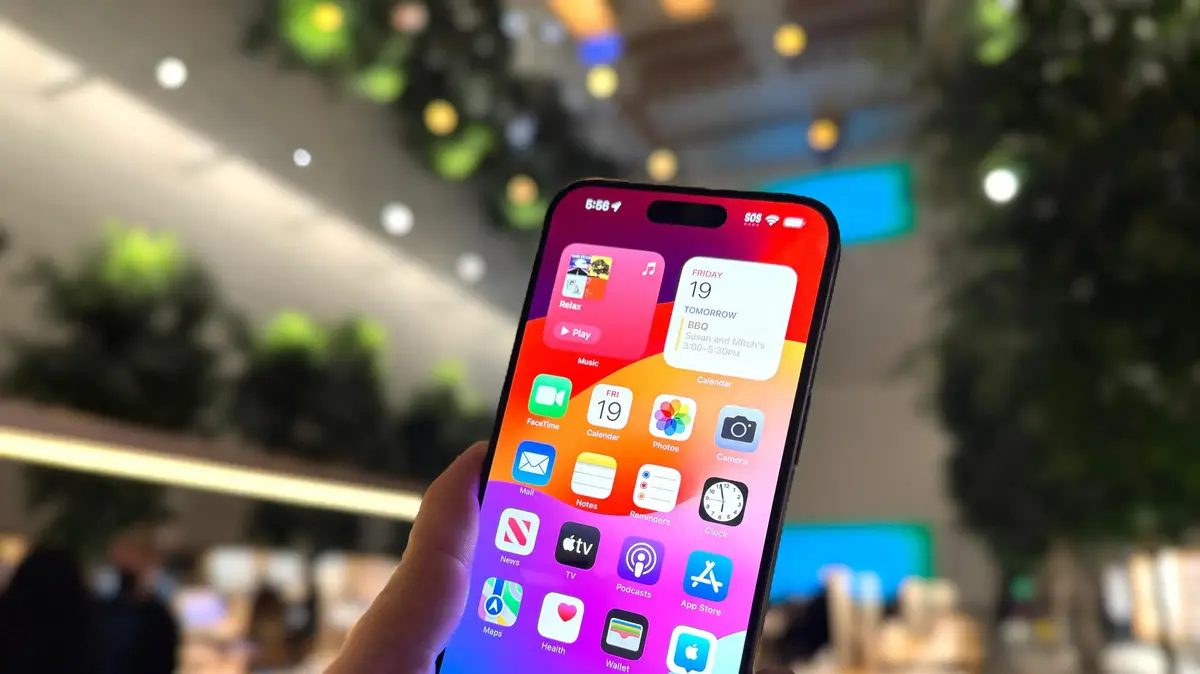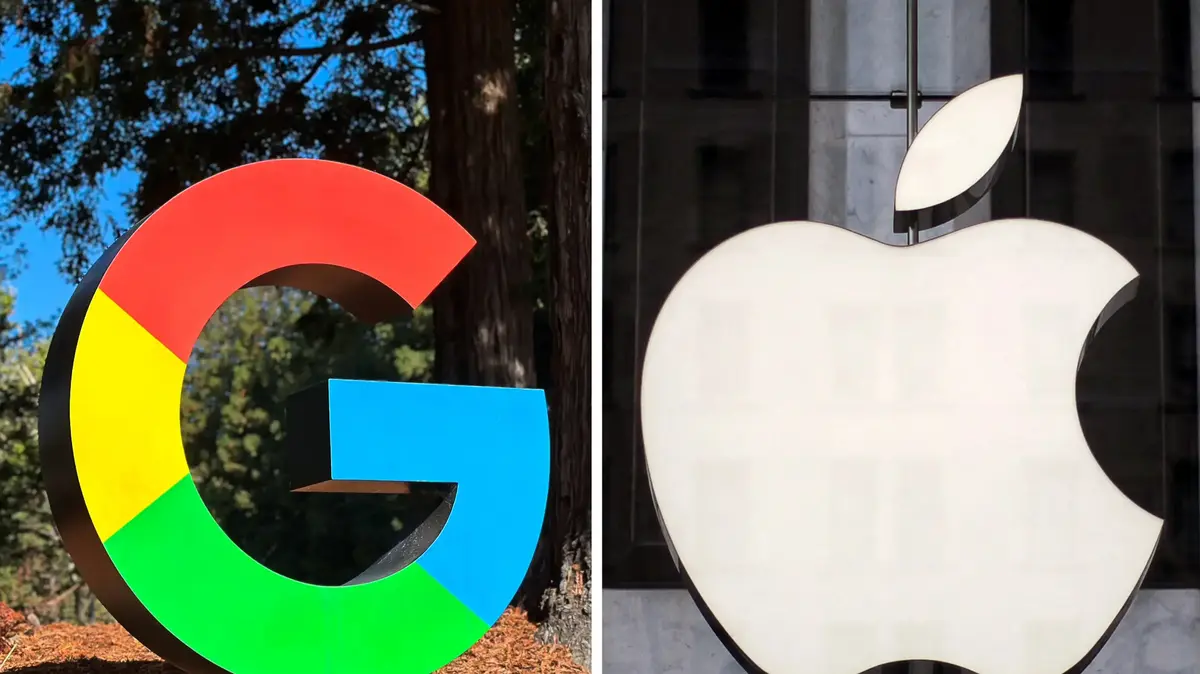Business
news
Facebook vs. Apple: The battle that will decide the future of the Internet
On one side stands Apple, which believes that everything should be paid for - and a lot;
On the other hand, Facebook wants to give everything away for free, but charge through users' information.
The conflict between them over the new privacy update on the iPhone may determine which model will remain here in the coming years
Tags
Facebook
Dark
Ophir Dor
Saturday, February 13, 2021, 9:30 p.m.
Share on Facebook
Share on WhatsApp
Share on general
Share on general
Share on Twitter
Share on Email
0 comments
Netanyahu: 90% of people aged 50 and over must be vaccinated within ...
Adi Sofer Thani with Dan Arieli
Fire: Expect the police to prevent mass incidents like ...
Political crisis in Italy: Prime Minister Conte resigns ...
Harel Rescue Northern Ethiopia
The Histadrut workers' committee identifies with the fight against violence ...
Fire: We will consider legal action against Pike News distributors on ...
Thousands attend the funeral of Rosh Yeshiva Brisk ...
Netanyahu at the beginning of the cabinet meeting discussing the extension of the closure: ...
Yagil Witt, CEO of Tornado
Angle video find the fishing companies
In the video: Apple, Google, Amazon and Facebook were questioned at the US Congress about harming competition (Photo: Reuters, Editing: Nir Chen)
Both sides in this conflict are far from righteous.
On the one hand, Apple and CEO Tim Cook, who have proven over the years to be an aggressive monopoly that collects murderous fees from app owners' revenues and subordinates them to draconian rules. Successfully and discreetly.Even
if both are unjust and acting out of self-interest, the ongoing confrontation between Apple and Facebook, which has escalated in recent weeks, may determine the business model the Internet will work on in the future.
More on Walla!
NEWS
Roots work: Moran Stoitsky and Michal Amdursky in a surprise challenge
To the full article
His aggressive monopoly is trying to conquer the kingdom of information gathering.
Tim Cook (Photo: Reuters)
Apple plans to introduce an update to the operating system in the coming months, in which iPhone owners will be asked to approve or not approve applications to monitor their activity when browsing other sites and software on the phone.
The most prominent and vocal opponent of the move is Facebook, which has posted a string of huge ads against it in the press and is threatening to sue Apple in a private antitrust lawsuit.
Facebook maintains an extensive network of monitoring users of third-party websites and applications, to later offer them targeted and segmented advertising.
Every time we add a screen protector to the shopping cart, for example, Facebook receives this information and can nag us over and over again that we must complete this purchase.
Facebook allows any user of its app to check the extent of monitoring done on third-party sites through the device, and the results are pretty amazing.
In my case, for example, Facebook has collected no less than 394 interactions with the Ali Express website, even though I do not really buy its heavy.
After the update from Apple, it will be easier for iPhone users to stop this monitoring and it is estimated that many will choose to do so.
It’s hard to resist a move that gives users free choice, but Facebook has nonetheless found a relatively elegant way to do so.
Facebook, for example, opposes the manner in which the choice is formulated by Apple, which refers to the monitoring of users (even though no matter how you turn it around, it is indeed monitoring).
In recent weeks they have circulated their own alternative erupting message, asking users to approve it "support business" and "accept advertisements that are more personal".
Small businesses in general are starring in Facebook's campaign against Apple's move.
The social network claims that without the ability to monitor users and offer targeted advertising, small businesses will lose revenue.
According to one of the data published by Facebook, small businesses will see a 60% drop in sales for every dollar spent on advertising without the possibility of targeting the target audience.
That number is controversial and apparently inflated, but what is not in doubt is that Facebook is also expected to lose revenue, perhaps even up to 10% of its annual revenue as a result of the targeted advertising hit.
Free model versus pay for everything
The confrontation surrounding the announcement between Facebook and Apple has been brewing for many years and expresses the business directions the two companies are going for.
Facebook is a company that advocates a free model and Zuckerberg is known as a devout opponent of charging for services, as it hurts growth in the number of users.
Somewhere before it was acquired by Facebook, WhatsApp operated a subscription model that required a dollar payment per year for using the app.
Although the app did not always enforce it, WhatsApp founder Jan Com claimed that this model was successful.
However, after Facebook bought it for $ 19 billion, it decided to give up the payment even though it did not exactly have another business model to replace it.
Instead of paying Facebook is a data company, whose revenue is based on the fact that it offers advertisers the detailed information it has about users.
Facebook believes that they also create such value by giving targeted advertising, and there are quite a few users who will even agree with this.
Apple, on the other hand, is a company that charges a fee, and a high fee must be said, for almost everything.
Even when Apple allocates storage space, it gives a minimum space of only 5GB for free, and any upgrade is done for a fee.
As part of the pay-as-you-go model, Apple has in recent years begun to take an approach that increasingly protects the privacy of its paying users.
For example, Apple's maps do not store information about users' location, Apple's news service does not store and process information about articles that users read, and the Safari browser restricts the transfer of information about users to third parties.
With revenue of over $ 100 billion a quarter from product and service sales, Apple can do without this information.
Of course it can be argued that Apple's approach is tainted with quite a bit of hypocrisy because the company receives billions of dollars every year from Google for promoting its search engine, even though it is also built on collecting data from users.
"There are a lot of people who can't pay."
Zuckerberg (Photo: Reuters)
These business gaps were reflected in the bites that the parties send to each other.
Zuckerberg, for example, once called Apple a company that serves only the rich with expensive gadgets.
"If you want to build a service that helps connect everyone in the world, so there are many people who can not pay," said Facebook CEO.
Conversely Cook attacked based business model utilizing Facebook's information, even if without mentioning its name, in a speech given by At the end of January. "If we accept as normal and inevitable that everything in our lives can be collected and sold, we lose more than just data, we lose the freedom to be human," Cook said.
The beginning of the privacy revolution?
But we will leave the exchange of accusations between the two and focus on the essence. Despite Facebook's opposition, Apple seems determined to put the update into the operating system, and the question is what its far-reaching implications will be.
One option is that not much will happen. Facebook has quite a bit of information about us from what we do in the app itself, and even without information from a third party, it can segment the audience. Even if Facebook loses advertising revenue initially, it will find a way to get by later.
In the long run, it may be that smaller sites and applications, which do not have much information about user interactions within them, are the ones that will impair their ability to identify users. All of this will even strengthen Facebook in the long run and the information-based internet economy will survive big time.
On the other hand, it should not be ruled out that Apple's update is the beginning of the privacy revolution, when more players, such as Google and its Android operating system, will follow suit and give users more choice in managing their data. All of this will require sites and social networks to look for alternative models to make a living from, such as charging a fee.
This is not so far-fetched given that even Twitter is already trying to look for options to charge for services, to diversify revenue. Thus the internet economy will change substantially and the question of whether it is good or bad is a subjective matter. What is certain is that for Apple's business model, which charges a fee for each payment for the app, it will not be bad at all.
Share on Facebook
Share on WhatsApp
Share on general
Share on general
Share on Twitter
Share on Email
0 comments









